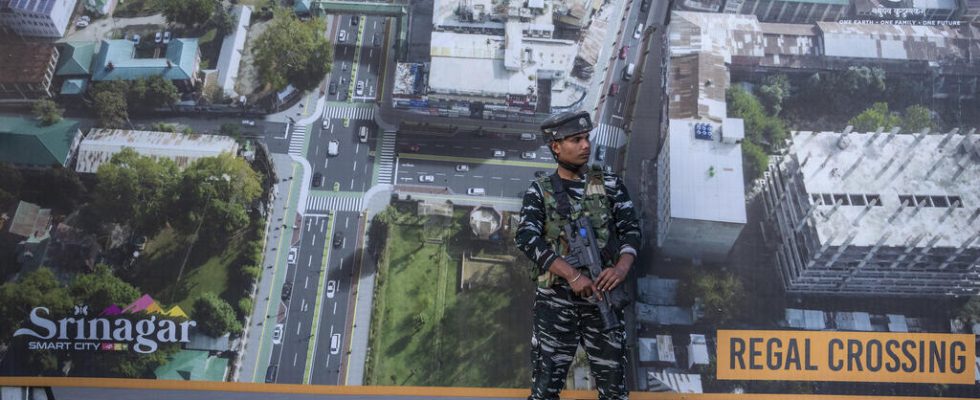A rather exceptional G20 meeting – not so much for the content of the discussions, but for its location – is being held in Kashmir, a region plagued by more than 30 years of armed independence rebellion. It is the largest meeting organized on the spot since New Delhi unilaterally abrogated its statute of autonomy, and reinforced its control. The government intends to signal a return to normal in Kashmir.
From our special correspondent in Srinagar, the summer capital of Kashmir
It is a huge communication operation for the federal government. It has been almost four years since he brutally abrogated Kashmir’s autonomy, converted the region into a territory directly administered by New Delhi, without a parliament, and tightened military control to try to resorb terrorist attacks.
Today, he wants to show that it has paid off: for several days in a row, the regional government fills the front pages of newspapers with advertisements praising the 6,900 km of roads built over the past three years, the foreign investments received or the digital services deployed. in Kashmir. This G20 meeting, which will talk about tourism, must devote this return to normal and serve as a showcase to show the world that the region has been pacified.
► Read also : Kashmir, torn between India and Pakistan
Behind the window, a darker reality
In four years, Kashmir has also become the largest prison for journalists in the country. Four Kashmiri reporters are currently behind bars, accused of terrorist activities because of their writing or work, and many others prosecuted for similar facts, and released on bail. Independent journalists are regularly intimidated by the police, threatened with arrest if they do not stop posting critical information on social networks.
The most important media are controlled from within: two of the region’s largest English-language dailies, The Rising Kashmir And Greater Kashmir, have had to accept sorts of “ideological controllers” often members of the ruling party who revise the articles to cut out the negative information and add something positive. Censorship from within, therefore. This repression also affects human rights defenders, such as the most famous of them, Khurram Pervez, a famous figure who has been in prison for two years, accused of ” financing of terrorism “.
► To read also: Indian Kashmir: the police arrest an investigative journalist accused of “sedition”
Repression under the guise of security
The government claims to have to control information in order to avoid revolts in this explosive region, plagued by more than thirty years of armed insurrection. And the Federal Minister of Information guarantees that these restrictions do not infringe the freedom of the press, which is ” sacrosanct “, according to him.
On the occasion of its presidency of the G20, India presents itself as “the mother of democracy”. Kashmir journalists would especially like evidence of this. If India is really a great democracy, confided to RFI one of them, then ” the government must stop treating journalists like terrorists “.
► Read also : Modi’s first official visit to Kashmir since 2019 lockdown
